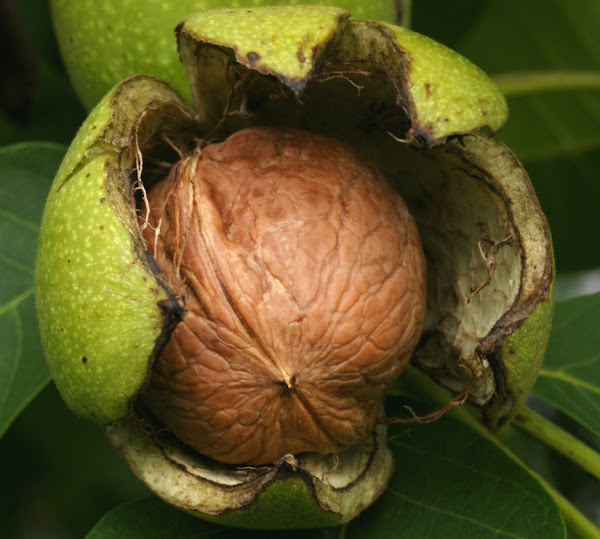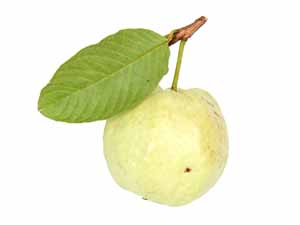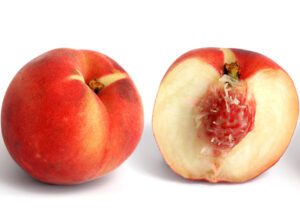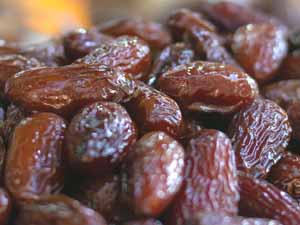Commercial walnut farming is a very old and traditional business in some countries around the world. Popularity and price of walnut both are higher in the international market. It is very popular in almost every continent for it’s taste and nutritional value.
Actually, walnut is the edible seed of a drupe of any tree of the genus Juglans (family Juglandaceae), particularly the Persian or English Walnut, Juglans regia. Walnut is not a true botanical nut, although culinarily considered a nut and used as such. The shell is discarded and it is used as a garnish or a snack after full ripening. Nuts of the butternuts and eastern black walnut are less commonly consumed.
Walnuts are rounded, single-seeded stone fruits of the walnut tree and generally used for the kernel after fully ripening. During the ripening process, the husk will become brittle and the shell will become hard. The shell encloses the kernel, which is usually made up of two halves separated by a partition within a fibrous sheath that splits when ripened.
The seed kernels (commonly available as shelled walnuts) are enclosed in a brown seed coat which contains antioxidants. The antioxidants protect the oil-rich seed from atmospheric oxygen, thereby preventing rancidity. Walnuts are late to grow leaves, typically not until more than halfway through the spring. They secrete chemicals into the soil to prevent competing vegetation from growing. Because of this, flowers or vegetable gardens should not be planted close to them.[1]
Total worldwide production of walnuts was 4.5 million tonnes in the year of 2019, with China alone contributing about 56% of the total. Other major walnut producing countries were the United States, Iran and Turkey. However, commercial walnut farming is a very easy and profitable business. You can start this business for making good profits.
Walnut Nutrition
Walnut is a very nutritious and healthy fruit. They provide healthy fats, fiber, vitamins and minerals. Raw walnuts without shells are 65% fat, 15% protein, 14% carbohydrates, 7% dietary fiber and 4% water. In a 100-gram reference serving, walnuts provide 654 kcal and rich content of several dietary minerals, particularly manganese at 163% DV, and B vitamins.

Health Benefits of Walnut
Walnuts are very nutritious and are very healthy for human body. Here we are trying to describe the top health benefits of consuming walnuts.
- Walnuts are an excellent source of antioxidants. And antioxidants can help fight oxidative damage in human body, including damage due to ‘bad’ LDL cholesterol, which promotes atherosclerosis.
- If you are a vegetarian, then you might looking for plant based omega-3 fat. Walnuts are great for this purpose. They are a very good source of omega-3, which may help to reduce heart disease risk.
- Inflammation is a key culprit in many chronic diseases. And several plant compounds and nutrients found in walnuts may help to decrease inflammation.
- Eating walnuts nourishes not only you but also the beneficial bacteria that live in your gut. This promotes the health of your gut and may help reduce disease risk.[2]
- The polyphenols present in walnuts may reduce the risk of some cancers including colorectal, breast and prostate cancers.
- Eating walnuts on a regular basis may help to control type 2 diabetes and also reduce your risk of some diseases. Walnuts have more direct effects on blood sugar control as well.
- Eating walnuts regularly may help counteract potential harmful effects of less-than-ideal eating habits on sperm health.
- Walnuts may help you for controlling stress.
- As walnuts are great source of antioxidants, so they are great for boosting your immune system.
- Walnuts are heart-healthy and consuming them on a regular basis may help to improve blood pressure level.
- Regular consumption of walnuts will help you to stop premature aging.
- Walnuts contain nutrients that may help protect your brain from damaging inflammation and support good brain function as you age.
Advantages of Walnut Farming Business
Like most other commercial fruits, growing walnuts is also very easy. It is also very profitable, and you can start this business even if you are a beginner. Although, we recommend having practical knowledge or experience before starting this business. Here we are trying to describe about the top advantages of commercial walnut farming business.
- Starting commercial walnut farming business is very easy and you can start this business even if you are a beginner.
- Commercial production is an excellent way for making high profits.
- Commercial walnut farming is already an established business. So, you don’t have to worry much about starting and operating this business.
- Many people are already doing this business commercially, so you don’t have to worry much about it.
- The walnut plants are very strong and hardy, and they grow well in minimum care and management.
- Walnut plants generally require less caring and other management, and the caring process is very easy.
- Both demand and price of walnuts are much higher in both local and international market.
- Marketing/selling walnuts is very easy and simple. They already have very good demand and value in the market.
- Commercial walnut farming is a very profitable business if you can manage everything perfectly. So, commercial walnut farming can be a great employment source for the people.
- Commercial production of walnuts can be a very good employment source for the unemployed educated people.
- Production cost in walnut farming is relatively less, but the returns are much higher as compared to other fruit farming business.
- You will be able to make very high profits continuously for many years once the plants are established.
- The walnuts are highly nutritious and healthy and they have numerous health benefits. You can enjoy fresh walnuts if you start your own production business.
How to Start Walnut Farming?
Starting commercial walnut farming business is relatively easy and simple. It’s just like starting and operating other fruit farming business.
You can start this business even if you are a beginner. Here we are trying to describe more about this business from planting, caring to harvesting and marketing.
Step 1. Site Selection
Selecting a very good and suitable land is very important for commercial walnut farming business. Walnut plants generally grow well in well-drained deep silt loamy or clay loamy soils which are rich in humus and supplemented with lime.
Walnut plants generally grow well in soil with pH range between 6.0 and 7.5. Fertile and organic content rich soil is very good for optimum production.
Step 2. Prepare the Soil
Preparing the soil perfectly is the most important part of good walnut production. You should remove weeds from the field while preparing.
Remove previous crop roots, and then plough the land 3 to 4 times to get soil in fine tilth stage. Add adequate amount of organic fertilizers while preparing the soil.
Step 3. Climate Requirement For Walnut Farming
Generally walnut plants grow well in cool climatic conditions, but frost conditions during spring may not suitable for walnut farming.
The walnut plants also do not prefer hot summer areas. An evenly distributed annual rainfall of around 800 mm is suitable for best growth and production.
Temperature above 38° C results in sun burning of hulls and shriveled kernels and also impacts the yields severely.
Step 4. Best Time For Walnut Cultivation
If the most proper timing is to be chosen, plant your walnut tree in fall to speed root development up before the winter frost spells. It can also be planted in spring though, when purchased in a container, or also in summer as long as periods of sweltering heat are avoided.
Step 5. Choose a Variety
The two most common major species of walnuts are grown for their seeds – the Persian or English walnut and the black walnut. The English walnut (J. regia) originated in Iran (Persia), and the black walnut (J. nigra) is native to eastern North America.
The black walnut is of high flavor, but due to its hard shell and poor hulling characteristics it is not commercially cultivated in orchards. And there are numerous walnut cultivars available for commercial production. And almost all of these cultivars are hybrids of the English walnut.
However, you should consult with an expert in your area or contact your local agriculture extension office for choosing the best variety/cultivar for your area.
Step 6. Propagation
Walnut trees can be propagated in many different ways. They can be propagated through seeds, grafting or budding methods. The most common and popular propagation method is through seeds. It’s always better to use the local walnut seedlings as rootstocks.
Step 7. Purchase Plants
Today, there are many nurseries available which produce walnut plants. You can purchase the plant from any of your nearest nurseries.
Step 8. Planting
In case of flat lands, square system is generally used for planting, and adopt contous planting system in hilly, steep slope areas. Follow adequate spacing of the plants depending on cultivars for maximum production.
Step 9. Caring
The walnut plants are generally very strong and hardy and they require less caring and other management. Although taking additional caring will help the plants to grow well and produce more.
Fertilizing
Add adequate amount of well rotten farm yard manure while preparing the soil for walnut farming. Applying chemical fertilizers is also required for maximum production.
Apply small amount of P & K during the first 5 years (about 100 grams per plant). Thereafter, apply 45-80 kg P per hectare and 65-100 kg of K per hectare.
And in case of N, a dose of 100 grams per tree should be applied in the first year and increase 100 grams every year.
Watering
Providing adequate irrigation is mandatory for maximum production. Apply first irrigation immediately after planting the plants.
And give subsequent irrigation based on soil moisture holding capacity, weather and season. Don’t provide any irrigation during rainy season.
Mulching
Mulching helps to retain moisture into the soil, and at the same time it helps to prevent weeds from the field. You can use both plastic or organic mulching depending on the availability in your area.
Controlling Weeds
Controlling weeds is very important, because weeds consume most of the nutrients from the soil. Apply both manual and chemical weed controlling methods for best results.
Training And Pruning
Training should be carried in walnut farming after the 1st year using the Modified Central leader System. And pruning operation should be carried out in earl spring.
Intercropping
You can go for intercropping in walnut farming for getting additional income. You can use inter space during first 4 to 6 years after planting the walnut. You can cultivate any legume crop or vegetable like tomato, onion, chilli as an intercrop.
Step 10. Pests And Diseases
Selecting high quality and disease resistance seeds will prevent most of the pests and diseases problem. Consult with your local horticulture/agriculture department for more information.
Step 11. Harvesting
Commercial walnut farming is a long term business. But it totally worth waiting. Walnut trees generally become start fruiting 10-12 years after planting the seedlings.
You can expect full commercial production after 18 to 20 years from planting time. But grafted planting starts fruiting early (within 4-5 years after planting). You can expect full commercial production in grafted plantation in 8-10 years.
Step 12. Yield
A fully grown walnut tree produces as high as 125 to 150 kg nuts. But you can expect an average yield of 40 to 50 kg of nuts from each walnut tree. Although, it depends on the cultivar and also on farm management practices.
Step 13. Marketing
Marketing walnuts is very easy, and you can target your local market for selling your products. Although, you should set your marketing strategies before starting this business.
These are the common steps and ways for starting and operating a successful walnut farming business. Hope this guide has helped you! Good luck & may God bless you!






